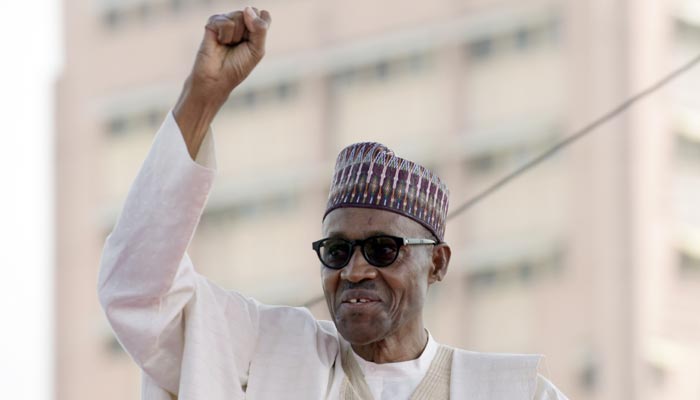
By Adeyola Opaluwah
Youth groups under the aegis of the Nigeria Youth Climate Coalition (NYCC) and the African Youth Initiative on Climate change (AYICC) have called on Nigeria’s President to match words with concurrent action on climate change and the country’s divestment from fossil fuels.
The call came barely few hours after President Muhammadu Buhari was sworn on the 29th of May 2015, promising to combat climate change amidst other 21st century challenges.
According to Esther Agbarakwe, “climate change remains one of the biggest challenges facing the world today, from storms in America to heat waves in India and recalling the 2012 floods in Nigeria that eroded the small gains in development and democracy. We are reminded of need for leadership and the required but urgent and rigorous action on climate change.”
Reiterating the need for Nigeria to urgently divest from fossil fuels and other dirty energy sources, Hamzat Lawal called on the President to “focus on investing more in renewable energy which can create millions of job for young people and support local efforts in bridging the inter-generational gap in climate leadership.” We also ask the President to give young people a voice in climate decision-making at all levels’ Lawal added.
‘When it comes to climate change, people generally look towards experts for solutions forgetting to engage us, young people. As young Nigerians we are more disproportionately affected by the impact of climate change more than any generation and we will not watch as our future is risked by the inactions of our past leaders’, Hamzat Lawal stressed.
Renewable energy in Nigeria
Nigeria is endowed with abundant renewable energy resources like large hydro (11,250 MW) small hydro (3,500 MW), solar (3.5 – 7.0 kWh/m2/day); an equivalent to 485.1 million MWh/day using 0.1% land area), biomass (fuelwood, animal wastes, agric residues, energy crops), wind (2-4 m/s at 10m height). Others are tidal and ocean waves as well as geothermal.
Recognising that renewable energy reduces sole dependence on fossil fuels and thus improves security of supply, reduces greenhouse gas emissions creating environmental benefits, while delivering green jobs to the economy, the Nigerian government has expressed its commitment to accelerating the development of renewable energy in the country through various national development goals like Vision 2020-20, National Bio-fuel Policies and the Energy Demand and Supply Projection Scenarios.
However, the expressed commitment remains largely bogged down by constraints in the rapid development and diffusion of technologies for the exploitation and utilisation of renewable energy resources in the country, lack of political will, absence of market and the lack of appropriate policy, regulatory and institutional framework to stimulate demand and attract investors.
The comparative low quality of the systems developed and the high initial upfront cost also constitute barriers to the development of markets. The Government’s ambitions for renewable energy and the related national targets are in line with global quest for a long term energy security and clean environment for sustainable development.
As the new government begins to settle down, it will become increasingly clear that climate change, energy security and employment are inter-related challenges that can be addressed through the transformation of Nigeria’s economy from one based mainly on fossil fuel to a low carbon economy based around renewable energy and energy efficiency.












Comments 1